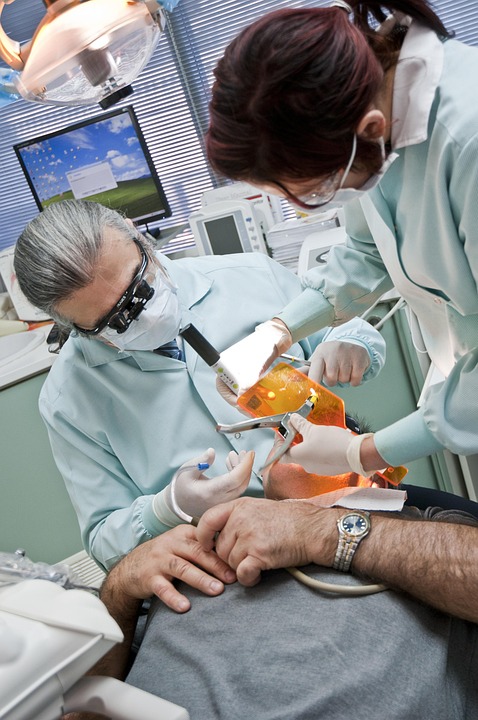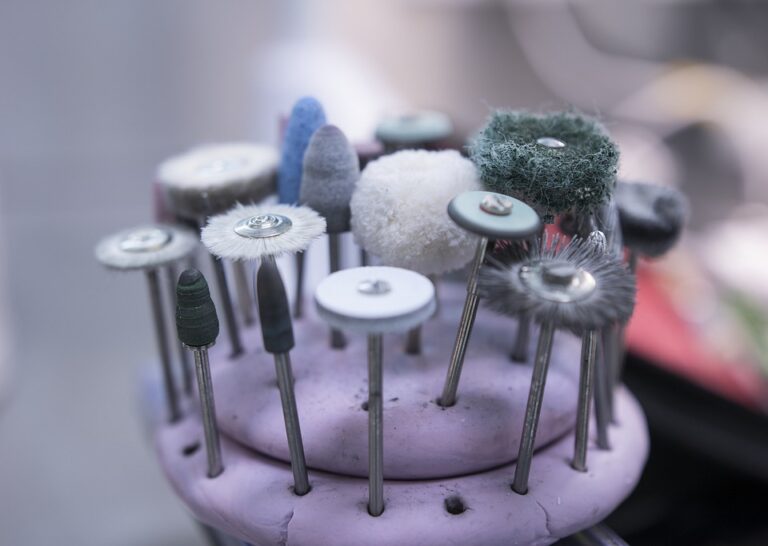
Does Fosamax Cause Dental Problems? Understanding Risks, Symptoms & Prevention
You’ve probably heard the name Fosamax if you or someone you care about deals with weak bones or wants stronger bones. But maybe you’ve also heard scary stories or warnings about what this medicine can do to your teeth and jaw. Is there really a link between Fosamax and dental problems? That’s what I’ll help you figure out today.
This article is worth your time because we’ll talk about everything from how Fosamax works for your bones, to rare but important risks like jawbone damage, to real life steps you can take right now to keep your smile healthy. Whether you’re worried or just a little curious, stick with me. Let’s clear all this up, together.
Table of Contents
- What Is Fosamax and How Does It Help Your Bones?
- What Dental Problems Can Fosamax Cause?
- What Is MRONJ and Why Should You Care?
- Am I at Risk? What Increases My Chances of Problems?
- What Kind of Dental Work Is Risky?
- How Do I Know If Something’s Wrong?
- What Should I Do Before Taking Fosamax?
- How Can I Prevent Dental Issues?
- What Steps Help If I Have a Dental Problem?
- Should I Worry About Dental Implants and Extractions?
- Key Takeaways for Fosamax Users
- FAQs
- Summary Table
What Is Fosamax and How Does It Help Your Bones?
Fosamax, also called alendronate, is a common medicine for osteoporosis. Doctors give it to help make your bones stronger and lower your chance of breaking them, especially as you get older or have weak bones. It’s in a group of drugs called bisphosphonates.
How does Fosamax work? It mostly blocks some bone cells called osteoclasts. These cells normally help break down old bone so new bone can take its spot—a regular process called bone remodeling. When osteoclasts slow down, your body can add more minerals to your bones and make them thicker. Usually, that’s a good thing.
But there’s a small problem. While this helps bones to get stronger, it also slows down healing when you get an injury. That can cause problems—especially in your jaw—if you need dental surgery.
What Dental Problems Can Fosamax Cause?
Most people who take Fosamax never have any big trouble with their teeth or jaw. But there’s one rare, serious problem you should know about: medication-related osteonecrosis of the jaw, or MRONJ. That’s a really long name, I know. Let’s make it simple.
Osteonecrosis means “bone death,” and it happens when blood can’t get to the bone like it should. If this happens in your jaw, the bone might show up as a bare spot in your mouth and not heal for weeks. Sounds scary? Yes. But remember, it’s rare—especially for people using Fosamax for osteoporosis.
Other, less common side effects can be:
- Jaw pain
- Slow wound healing after pulling a tooth or gum surgery
- Loose teeth
- Swelling or sore gums
These problems are serious, but for most people, they never show up. Still, it’s smart to pay attention.
What Is MRONJ and Why Should You Care?
MRONJ stands for Medication-Related Osteonecrosis of the Jaw. This is a rare thing that can happen to people who have taken bisphosphonates like Fosamax. Doctors call MRONJ a case where there is bare jawbone that doesn’t get better in eight weeks, after some dental work or sometimes even for no reason.
What causes MRONJ? Well, Fosamax and other bisphosphonates work by slowing down how bones rebuild. That’s nice for stopping bone loss, but it also means your jaw bone might not heal quickly after getting hurt or having surgery. Less blood may get to the bone, making things worse.
It sounds scary. But let’s be clear: most studies say that people with osteoporosis who take Fosamax by mouth only have a very tiny chance of getting MRONJ—about 0.01% to 0.1%.[^1] It’s rare, but it makes sense to know about it and play it safe.
[^1]: Ruggiero SL, Dodson TB, Fantasia J, et al. American Association of Oral and Maxillofacial Surgeons Position Paper on Medication-Related Osteonecrosis of the Jaw—2014 Update.
Am I at Risk? What Increases My Chances of Problems?
Let’s be honest—most people reading this are probably not in much danger. But a few things can make dental problems more likely:
- How you take Fosamax: If you take the pill by mouth, your risk is much lower than if you get bisphosphonates through a drip into your vein (usually for cancer).
- How long you take it: If you’ve taken Fosamax for more than 5 years, your risk for MRONJ goes up, but it’s still rare.
- Other medicines: If you also use steroids (like prednisone), cancer treatments, or certain other drugs, you have a higher risk.
- Your health: Having diabetes, gum disease, or dentures that don’t fit right can also make things riskier.
See this table for a simple rundown:
| Factor | Risk Level for MRONJ |
|---|---|
| Oral Fosamax use, <3 years | Very low |
| Oral Fosamax use, >5 years | Slightly higher |
| IV bisphosphonates for cancer | Much higher |
| Tooth extraction or oral surgery | Higher |
| Chemotherapy, steroids, diabetes | Higher |
| Poor dental care, gum disease | Higher |
So, if some of these fit you, talk to your doctor or dentist before you have any dental surgery. For everyone else—just keep up your regular dental visits and care for your teeth.
What Kind of Dental Work Is Risky?
Here’s the truth—not every time you see the dentist is a worry. But some things can be risky when you take Fosamax:
- Tooth extractions: This is the top reason for MRONJ.
- Dental implants: Sometimes, the jaw doesn’t heal after putting an implant in.
- Big gum surgeries: Cutting into your gums can raise the risk.
- Deep cleaning because of gum disease: If your gums are already infected, it can bump things up a bit.
Regular cleaning or a small filling? Usually, these are safe—even if you take Fosamax.
It’s smart to tell your dentist any medicines you are using, especially bisphosphonates. The more your dental team knows, the better job they can do looking out for you.
Want to learn more about the basics of teeth health? Give this link a click for more tips.
How Do I Know If Something’s Wrong?
Don’t get scared—most people never have a problem. But it helps to know what to look for, just in case. Watch for:
- Pain or swelling in your jaw
- Numbness or tingling in your jaw or lips
- A sore in your mouth that won’t heal
- Bare bone inside your mouth
- Loose teeth or dentures that don’t fit like they used to
- Redness, swelling, or pus around your gums
If you notice any of these things—especially if they last for more than a week—don’t wait. Call your dentist or doctor soon. Acting now can stop small problems from growing bigger.
What Should I Do Before Taking Fosamax?
Starting a new medicine like Fosamax is a big deal. But you can look after yourself and your smile by getting ready.
- Have a full dental checkup before you start Fosamax.
- Get any tooth, gum, or jaw problems fixed first.
- Tell your dentist you plan to start this medicine.
- Ask if you need any teeth pulled, fillings, or gum work now—before you get going.
Doctors call this a “checkup before treatment.” It’s the best way to start out healthy and lower your risk of jaw problems. Your dentist and doctor should always work together as a team for your care.
If you want to know more about easy dental care, this page is a good one to check.
How Can I Prevent Dental Issues?
Here’s where you can really make a difference. A few easy habits can keep your teeth in top shape—even if you take Fosamax every week.
Prevention Tips:
It might sound boring, but it’s true—good oral care is your #1 way to avoid problems. If you keep your gums and teeth healthy, you’re already ahead.
And for dentists who are planning crowns or bridges, knowing you take Fosamax lets them pick the best way to do things safely. Want to see how new lab tech helps? Look at this dental ceramics lab page for gentle, modern ideas for tooth repair.
What Steps Help If I Have a Dental Problem?
Picture you just found a painful spot in your mouth, or your jaw feels weird. Maybe your dentist says there’s bare bone. What now?
First, don’t worry too much. Most people get better with the right help. Dentists will usually try easy treatments first, like:
- Antibiotics to kill infection
- Special mouth rinses (like chlorhexidine)
- Pain medicine if needed
- Careful cleaning of the spot
If things don’t get better, your dentist might send you to an oral surgeon. Sometimes, a small surgery is needed to cut out the problem spot. In really tough cases, hyperbaric oxygen therapy (sitting in a special oxygen room) might help, but it’s not common.
The main idea: stop infection, ease the pain, and help your mouth get better. Most of the time, your dental team won’t pull teeth or cut the bone unless nothing else works.
Should I Worry About Dental Implants and Extractions?
Are you thinking about getting dental implants or having a tooth pulled? Here’s what you should know:
- Pulling teeth is the biggest reason for jaw trouble with Fosamax.
- Dental implants might be possible, but sometimes the jaw doesn’t heal right.
- You might hear about a “drug holiday.” This means stopping Fosamax for a while before planned dental surgery. It’s not for everyone, and only should be done if your doctor and dentist say your bones will still be safe.
In most cases, good planning before dental surgery will cut down risks. That’s why picking a dentist and dental lab familiar with these medicine risks is a smart move, like a good implant dental laboratory where they know how to look after your bones.
Key Takeaways for Fosamax Users
Let’s make it simple:
- Fosamax helps make bones stronger and is almost always safe for your teeth.
- A rare side effect called MRONJ can cause jaw bone problems—most often after big dental work.
- Risk is tiny for most, but goes up if you’ve used Fosamax for years, have unhealthy teeth, or need big dental work.
- Always let your dentist and doctor know what medicine you take.
- Look after your mouth by brushing, flossing, and going to the dentist.
- If you get mouth pain or sores, act fast—don’t wait or hope it gets better on its own.
If you need dental work, ask your dentist if they use a good digital dental lab. These places use the newest tools and ways to help your mouth heal faster, so there’s less to worry about.
FAQs
Is MRONJ common with Fosamax?
No, it’s very rare. Only about 1 in 10,000 to 1 in 1,000 people taking Fosamax for osteoporosis get this problem.
Can I get dental implants if I’m on Fosamax?
Maybe, but it depends on your risk. Your dentist will want to know how long you’ve been on Fosamax and if you have other health issues, and may need to talk with your doctor.
Should I stop Fosamax before getting a tooth pulled?
Don’t ever stop any medicine without your doctor telling you. Sometimes a “drug holiday” is suggested before big dental work, but your doctor and dentist need to agree that it’s safe.
Are there other bone medicines that don’t hurt teeth?
There are other medicines, but many can also cause jaw problems. Talk to your doctor about your health and choices.
How long does Fosamax last in the body for dental risk?
Fosamax can stay in your bones for years, even after you stop taking it. That’s why dentists need your old medicine info before planning any dental surgery.
For more answers about dental diseases and common problems, visit this easy guide.
Summary Table
| What to Remember | Details |
|---|---|
| Fosamax helps bones | Yes, it’s good for osteoporosis, but can rarely cause problems in the jaw |
| Main risk? | Medication-Related Osteonecrosis of the Jaw (MRONJ), especially after pulling teeth |
| How rare? | Very rare—0.01–0.1% for osteoporosis patients |
| High risk situations? | Using a long time, IV form, bad oral health, other medicines, dental surgery |
| Prevention | Great oral care, regular dentist visits, dentist knows what medicines you take |
| Signs to watch for | Jaw pain, bare bone, sores that won’t heal, swelling, loose teeth |
| What to do if something happens | See your dentist fast, follow their advice, don’t stop your medicine on your own |
Don’t let worry about Fosamax stop you from living your life! With a little planning, good habits, and working with your dentist and doctor, you can keep both your bones and your teeth strong.








